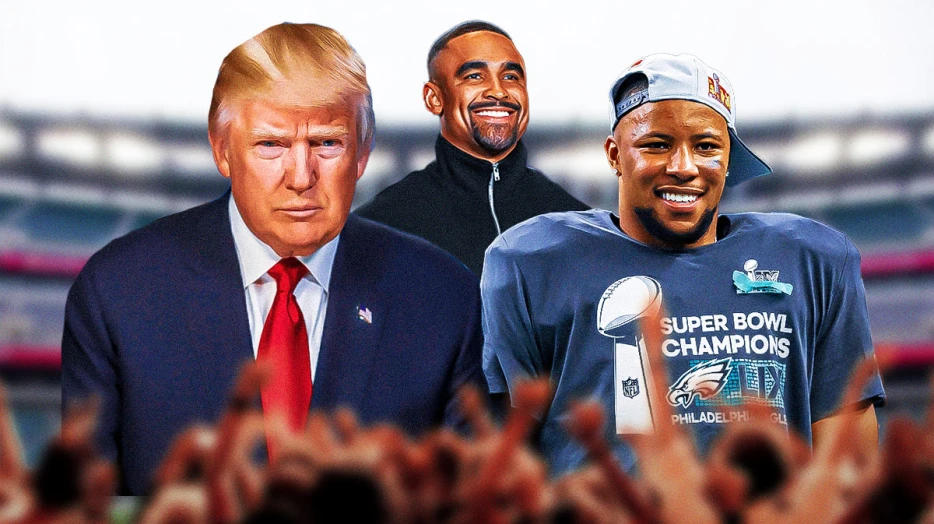
 ClutchPoints
ClutchPoints
The Philadelphia Eagles may have celebrated their Super Bowl 59 victory together on the field, but Monday’s White House visit exposed deeper fractures, NJ reports. Star running back Saquon Barkley joined President Donald Trump for a day that included golfing and a ride aboard Marine One. Meanwhile, teammates like Jalen Hurts, A.J. Brown, DeVonta Smith, Jalen Carter, Nolan Smith, and even the recently retired Brandon Graham were notably absent, opting out of the traditional post-championship trip.
While the reasons for skipping weren’t publicly disclosed, Barkley’s highly visible embrace of Trump did not fly under the radar. His presence — and his willingness to engage with the controversial former president on a personal level — sparked criticism from fans, commentators, and cultural figures alike. D.L. Hughley, never shy about speaking his mind, went in on Barkley in an appearance on TMZ Live, arguing that his attendance reflects indifference toward Black struggles and lends credibility to a president with a long history of racially charged rhetoric.
“You can’t squeeze honor out of the unhonorable,” Hughley said, accusing Barkley of embodying a brand of apathy that enables harm. His remarks also resurfaced a troubling chapter from February, when old tweets from Barkley’s fiancée, Anna Congdon, revealed the use of racial slurs, sparking new questions about Barkley’s awareness and sensitivity.
The ripple effects of the visit aren’t just social; they’re political and deeply personal. According to Bob Brookover of NJ Advance Media, the Eagles’ Super Bowl celebration now doubles as a cultural fault line. It’s become less about team unity and more about where each player stands in a polarized America.
Former Eagle and current FS1 analyst Emmanuel Acho tried to inject perspective, calling the response to both Saquon Barkley and Hurts “overblown.” On The Facility, Acho emphasized that the backlash has grown more venomous than productive. “They’re calling him ‘Slavequon,’” he pointed out, referencing the social media reaction. “And I hate that the venom is directed at both sides — whether you went or stayed home.”
In the end, Barkley’s decision has ignited a fresh chapter in the intersection of sports, politics, and race. What was once a celebratory ritual has evolved into a referendum on values, leaving fans and teammates asking: Who gets to define what honor really looks like?
The post Is Eagles’ Saquon Barkley’s allyship with Donald Trump a bigger issue? appeared first on ClutchPoints.